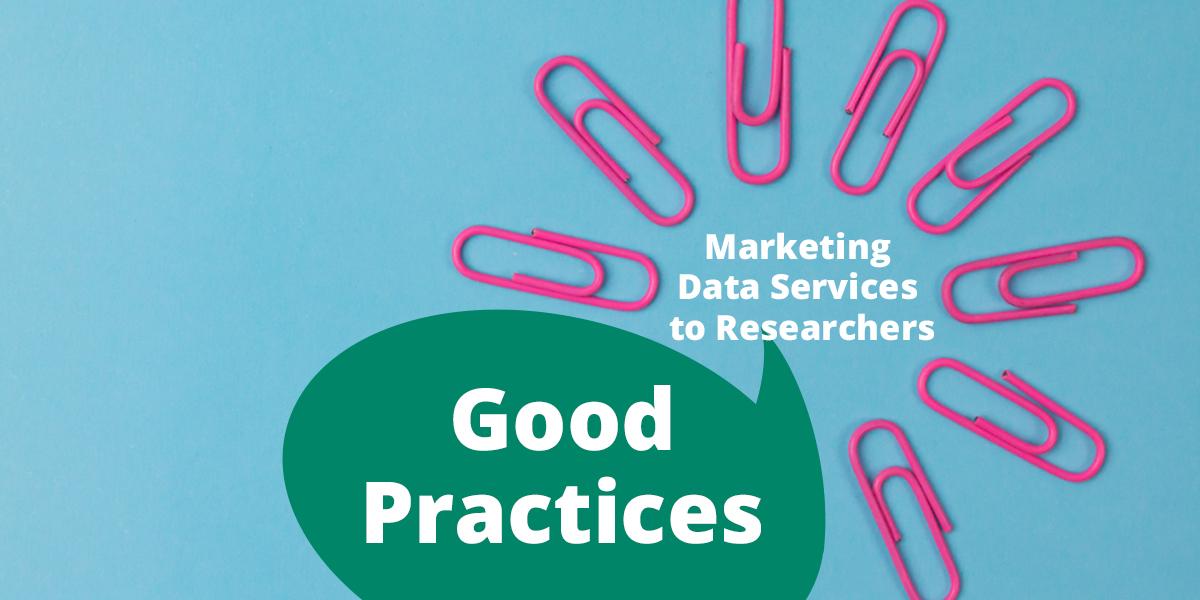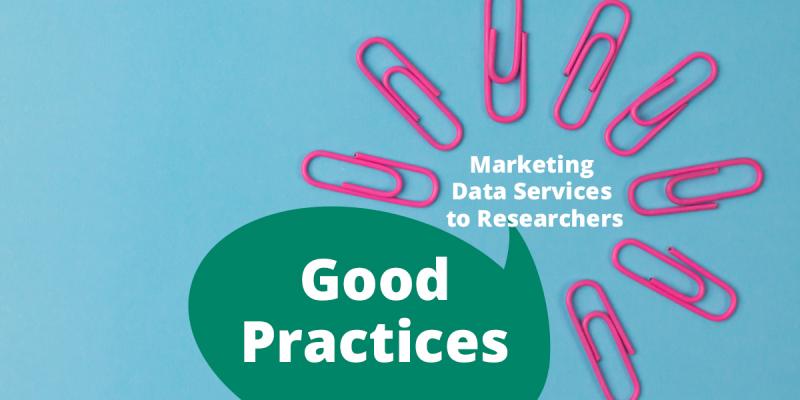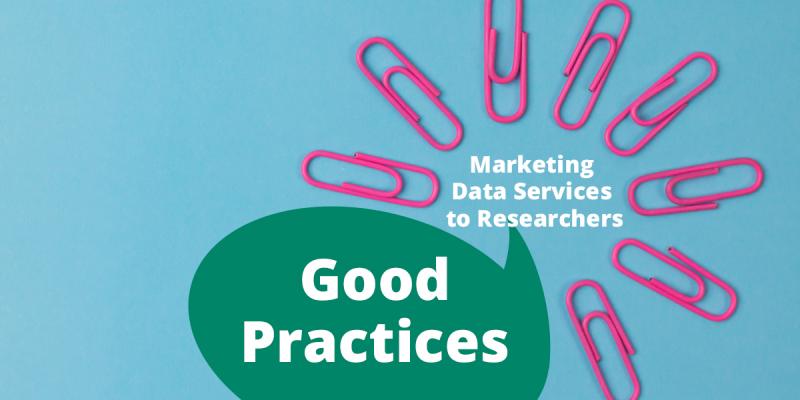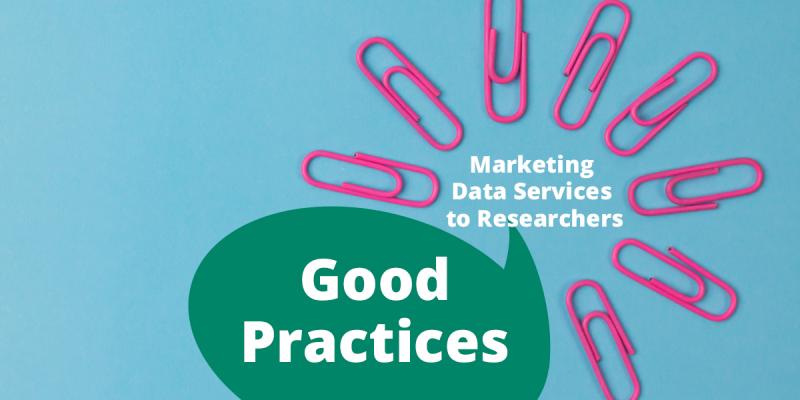
In the final part of the Good Practices series, Mari Elisa Kuusniemi sums up the ideas published during the autumn and considers the importance of marketing data management services.
When working in one's own bubble, it is difficult to see how much information is moving on the outside. As we develop and produce research services, our own world revolves around these things. Sometimes it is difficult to remember that the attention of the target group is quite elsewhere. Without the right content and well-timed marketing, customers will not find the best services.
During the autumn 2021, the Researcher's Data Services Marketing working group has published a series of good practices. The premise has been that no practices are too small to be shared, and ideas have varied from personal contacts to general briefings and official documents.
The Research Data Management Working Group of the European Association of Scientific Libraries (LIBER) has produced the guide 6 Pillars of Engaging Researchers in Research Data Management (RDM).The most important good practices in marketing data management for researchers according to the working group have been compiled in the guide. As the name implies, the document presents six key guidelines (pillars) aimed at increasing knowledge and networking of good data management practices with researchers. It has been nice to note that the LIBER working group and the Researcher Data Services Marketing working group raise the same issues.
The table below lists the pillars of the guide and the related Good Practices presented earlier in this series
| Pillar | Good practices (wiki) |
|---|---|
| 1: Employ an Institutional Policy | |
| 2: Personally Engage with the Research Community | |
| 3: Engage Early-Career Researchers |
|
| 4: Facilitate Researcher-to-Researcher Communication via Data Stewards | |
|
5: Offer RDM Services and Training |
|
| 6: Communicate Everything You Do |
LIBER's guidelines mainly concern consultative services, but also cover other data management services. The guide is applicable to all research organizations and is intended for both fresh and established data management service providers.
- More information on the LIBER Research Data Management Working Group
- Publication: Boserup Thestrup, Jesper, Braskova, Miriam, Krogh Kruuse, Kirsten, & Lembinen, Liisi. (2020). The 6 Pillars of Engaging Researchers in Research Data Management (RDM). Zenodo.
| + | – |
|---|---|
| The guide brings together important aspects of promoting good data management practices. |
Requires a lot of resources and time. |
Text: Mari Elisa Kuusniemi, University of Helsinki
Photo: Unsplash / Tamanna Rumvee (edited)
Previously in this series:
- Mari Elisa Kuusniemi: Data policies encourage discussion and teamwork
- Juuso Ala-Kyyny: A blog is more than the sum of its parts
- Nina-Mari Salminen: Introducing data services during DMP evaluation
- Jari Friman: Training as an Opportunity to Market Services
- Taisa Sallinen: An Officially Approved DMP for All Research Projects?
- Mari Elisa Kuusniemi: Familiar Faces Build Trust
- Mika E. Virtanen: Share Current Affairs at General Information Meetings
- Eeva Savolainen: Multi-channel Channel Communication Reaches a Wide Audience
- Päivi Rauste: Making Training Materials Openly Available Saves Resources
- Eeva Savolainen: Data Agents as First Point of Contact
- Mika E. Virtanen: Web Cafés Facilitate Discussion
- Pauli Assinen: Introducing Good Practices for Data Services Marketing


